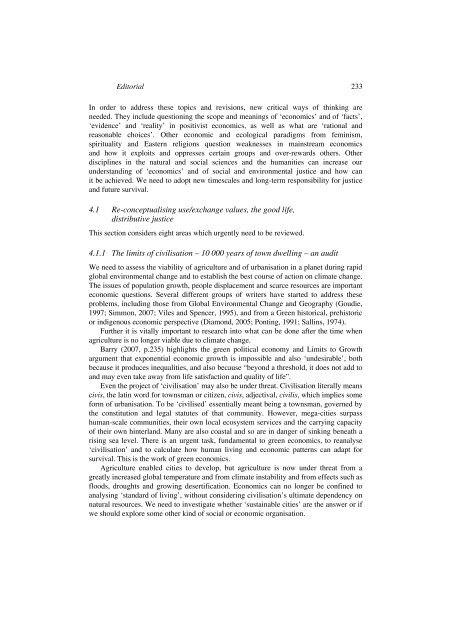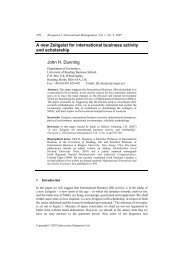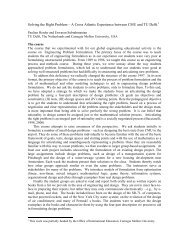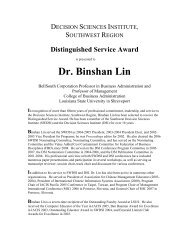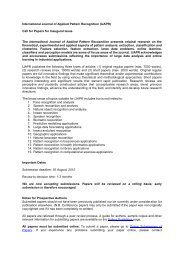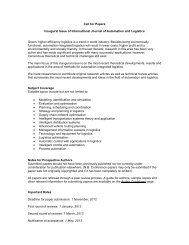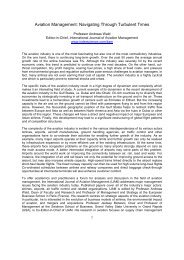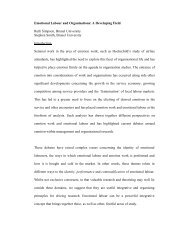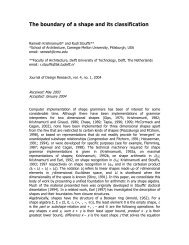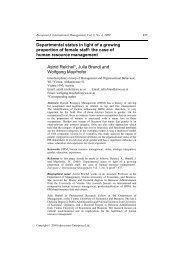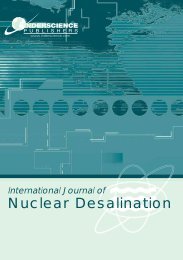Editorial: progress in Green Economics: ontology, concepts and ...
Editorial: progress in Green Economics: ontology, concepts and ...
Editorial: progress in Green Economics: ontology, concepts and ...
You also want an ePaper? Increase the reach of your titles
YUMPU automatically turns print PDFs into web optimized ePapers that Google loves.
<strong>Editorial</strong> 233<br />
In order to address these topics <strong>and</strong> revisions, new critical ways of th<strong>in</strong>k<strong>in</strong>g are<br />
needed. They <strong>in</strong>clude question<strong>in</strong>g the scope <strong>and</strong> mean<strong>in</strong>gs of ‘economics’ <strong>and</strong> of ‘facts’,<br />
‘evidence’ <strong>and</strong> ‘reality’ <strong>in</strong> positivist economics, as well as what are ‘rational <strong>and</strong><br />
reasonable choices’. Other economic <strong>and</strong> ecological paradigms from fem<strong>in</strong>ism,<br />
spirituality <strong>and</strong> Eastern religions question weaknesses <strong>in</strong> ma<strong>in</strong>stream economics<br />
<strong>and</strong> how it exploits <strong>and</strong> oppresses certa<strong>in</strong> groups <strong>and</strong> over-rewards others. Other<br />
discipl<strong>in</strong>es <strong>in</strong> the natural <strong>and</strong> social sciences <strong>and</strong> the humanities can <strong>in</strong>crease our<br />
underst<strong>and</strong><strong>in</strong>g of ‘economics’ <strong>and</strong> of social <strong>and</strong> environmental justice <strong>and</strong> how can<br />
it be achieved. We need to adopt new timescales <strong>and</strong> long-term responsibility for justice<br />
<strong>and</strong> future survival.<br />
4.1 Re-conceptualis<strong>in</strong>g use/exchange values, the good life,<br />
distributive justice<br />
This section considers eight areas which urgently need to be reviewed.<br />
4.1.1 The limits of civilisation – 10 000 years of town dwell<strong>in</strong>g – an audit<br />
We need to assess the viability of agriculture <strong>and</strong> of urbanisation <strong>in</strong> a planet dur<strong>in</strong>g rapid<br />
global environmental change <strong>and</strong> to establish the best course of action on climate change.<br />
The issues of population growth, people displacement <strong>and</strong> scarce resources are important<br />
economic questions. Several different groups of writers have started to address these<br />
problems, <strong>in</strong>clud<strong>in</strong>g those from Global Environmental Change <strong>and</strong> Geography (Goudie,<br />
1997; Simmon, 2007; Viles <strong>and</strong> Spencer, 1995), <strong>and</strong> from a <strong>Green</strong> historical, prehistoric<br />
or <strong>in</strong>digenous economic perspective (Diamond, 2005; Pont<strong>in</strong>g, 1991; Sall<strong>in</strong>s, 1974).<br />
Further it is vitally important to research <strong>in</strong>to what can be done after the time when<br />
agriculture is no longer viable due to climate change.<br />
Barry (2007, p.235) highlights the green political economy <strong>and</strong> Limits to Growth<br />
argument that exponential economic growth is impossible <strong>and</strong> also ‘undesirable’, both<br />
because it produces <strong>in</strong>equalities, <strong>and</strong> also because “beyond a threshold, it does not add to<br />
<strong>and</strong> may even take away from life satisfaction <strong>and</strong> quality of life”.<br />
Even the project of ‘civilisation’ may also be under threat. Civilisation literally means<br />
civis, the lat<strong>in</strong> word for townsman or citizen, civis, adjectival, civilis, which implies some<br />
form of urbanisation. To be ‘civilised’ essentially meant be<strong>in</strong>g a townsman, governed by<br />
the constitution <strong>and</strong> legal statutes of that community. However, mega-cities surpass<br />
human-scale communities, their own local ecosystem services <strong>and</strong> the carry<strong>in</strong>g capacity<br />
of their own h<strong>in</strong>terl<strong>and</strong>. Many are also coastal <strong>and</strong> so are <strong>in</strong> danger of s<strong>in</strong>k<strong>in</strong>g beneath a<br />
ris<strong>in</strong>g sea level. There is an urgent task, fundamental to green economics, to reanalyse<br />
‘civilisation’ <strong>and</strong> to calculate how human liv<strong>in</strong>g <strong>and</strong> economic patterns can adapt for<br />
survival. This is the work of green economics.<br />
Agriculture enabled cities to develop, but agriculture is now under threat from a<br />
greatly <strong>in</strong>creased global temperature <strong>and</strong> from climate <strong>in</strong>stability <strong>and</strong> from effects such as<br />
floods, droughts <strong>and</strong> grow<strong>in</strong>g desertification. <strong>Economics</strong> can no longer be conf<strong>in</strong>ed to<br />
analys<strong>in</strong>g ‘st<strong>and</strong>ard of liv<strong>in</strong>g’, without consider<strong>in</strong>g civilisation’s ultimate dependency on<br />
natural resources. We need to <strong>in</strong>vestigate whether ‘susta<strong>in</strong>able cities’ are the answer or if<br />
we should explore some other k<strong>in</strong>d of social or economic organisation.


